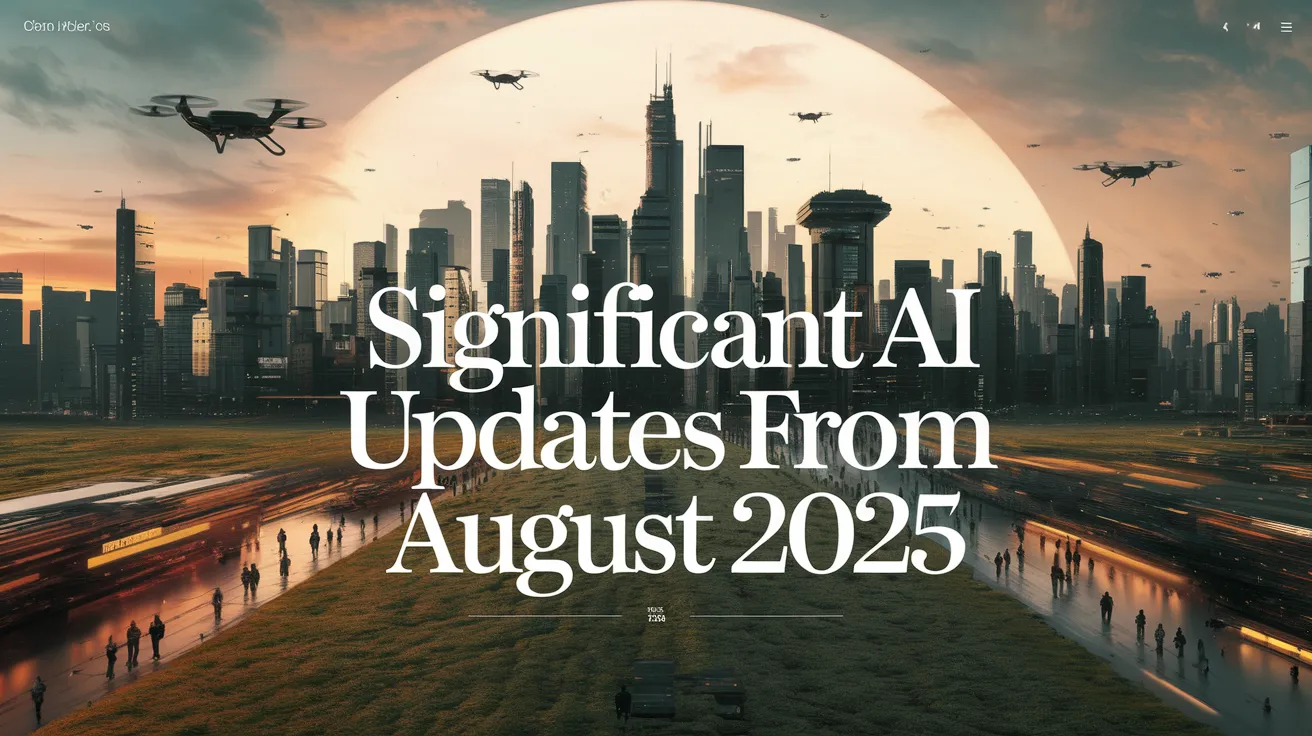Significant AI Updates from August 2025

For over two decades, Google has been at the forefront of machine learning and AI development, investing significantly in research, tools, and infrastructure aimed at enhancing everyday life. Recently, the company shared a roundup of its most important AI announcements from August, which highlight its ongoing mission to leverage AI for societal benefit.
Expansions in AI Search Functionality
In August, Google expanded its AI Mode in Search, introducing new personalized and agent-like features that cater to user preferences. Those participating in the AI Mode experiment in the U.S. can now receive curated dining recommendations and share links with friends, enhancing the collaborative nature of search. Notably, this expansion was not limited to the U.S., reaching over 180 new countries and territories in English.
Introduction of Deep Think Tool
The Gemini app also saw the rollout of Deep Think, a powerful tool available to Google AI Ultra subscribers. This tool assists with complex reasoning and problem-solving tasks and has already proven its capabilities, notably winning a gold medal at the International Mathematical Olympiad.
Launch of New Pixel Devices
At the Made by Google 2025 event, the company unveiled its latest Pixel hardware lineup, which includes the AI-powered Pixel 10 series. These devices are distinguished by the new Google Tensor G5 chip and come equipped with advanced features enabled by Gemini Nano, enhancing user interactions and functionalities in tasks such as photo editing.
Gemini App’s Image Editing Model: Nano Banana
Google also introduced the “Nano Banana” model within the Gemini app, celebrated as the top-rated image editing tool globally. This advanced model allows users to edit their photos creatively while maintaining consistency in likeness, not just with human subjects but also pets.
Supporting Education with Free AI Tools
As part of its educational outreach, Google announced a free one-year subscription to its AI Pro plan for college students in multiple countries. This initiative provides expanded access to tools such as Gemini 2.5 Pro and Deep Research, supporting students’ critical thinking and study efforts.
AI-Powered Coding and Content Creation
Google is also making strides in coding assistance, enhancing its asynchronous coding agent, Jules. After extensive beta testing, Jules is now available to assist users with various coding tasks seamlessly. Additionally, Google has shared methods through which its employees utilize AI, which can serve as tips for the broader audience.
Enhancements in Google Translate
With a focus on accessibility and communication, Google introduced live translation capabilities in Google Translate, facilitating real-time communication in over 70 languages. A new language practice feature has also been added to assist learners in achieving their language goals.
The Advent of Genie 3
Finally, Google DeepMind announced Genie 3, its landmark general-purpose world AI model capable of generating diverse simulation environments from a single text prompt. This development is vital for advancing research in artificial general intelligence (AGI) and offers novel ways to assess AI agents’ capabilities and limitations.